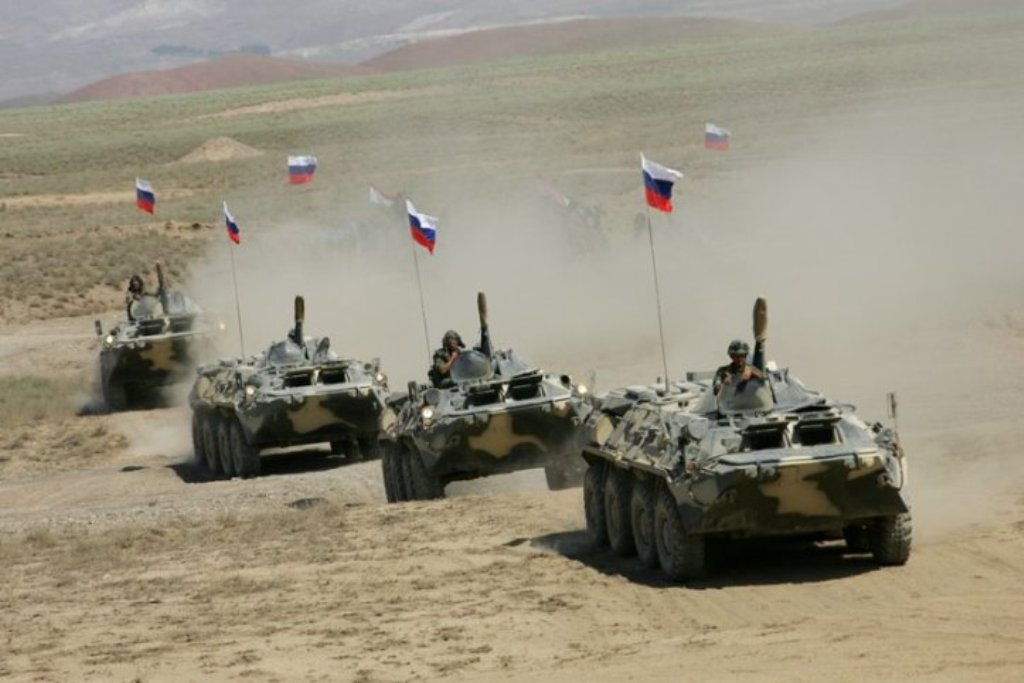Against the backdrop of the ongoing demographic crisis in Russia, the Kremlin is actively expanding Russian culture in Central Asia, investing huge amounts of money in this and using its influence on the regimes in the region. For example, on January 15, 2020, the Lower House of the Tajik parliament ratified an agreement between the governments of Russia and Tajikistan on the construction and material and technical equipment of five Russian-language schools.
The Deputy Minister of Education and Science of Tajikistan Rakhmatullo Mirboboev, presenting the document to the MPs, said that new schools with a capacity of up to 1200 children each will appear in Dushanbe, Kulyab, Khujand, Bohtar and Tursunzade. According to the document signed by Rakhmon and Putin in April 2019, after putting the schools into operation, teaching in them will be carried out in accordance with Russian educational standards.
Cultural and linguistic expansion on the part of Russia towards the peoples of Central Asia, which began even during the occupation of tsarist Russia, continues to this day. And the current Russian authorities are using ever new ways and means in this direction. And, if in the past the peoples of Turkestan were under the actual colonial control of Russia, now, although formally the peoples of the region have gained independence from Russia. In fact, the countries of Central Asia are under the full or strong influence of the Russian colonialist. Naturally, the pro-Russian regimes in these countries create all the conditions for the expansion of Russian culture and the Russian language in the region.
For example, in 2017 alone, 30 teachers arrived from Russia in Dushanbe. In the fall of 2018, another 48 teachers from different regions of Russia went to work in Tajikistan, and they were assigned to 20 schools in different cities of the republic. Farit Mukhametshin, deputy chairman of the Federation Council’s committee on international affairs of the Federal Assembly of the Russian Federation at an international conference of compatriots held in Tashkent on December 22, 2018, said that the Federation Council considered and adopted two laws regarding the dissemination of the Russian language and Russian culture outside Russia under the pretext of caring for compatriots abroad. “Based on the results of such meetings, the Upper House insists on the development of a mechanism for creating the concept of the “Russian School Abroad”, through the addition of a Russian state program on foreign policy. This implies the allocation of specific financial resources to support Russian schools abroad. And we received a positive reaction from the Russian government, which promised in 2021 to begin implementing a separate program “Russian School Abroad” – as a state program ” – he said then. He also recalled that during the visit of President Putin to Uzbekistan, more than 80 rectors of Russian universities visited the country, during the visit of which about a hundred agreements were signed to provide countries with so-called “assistance” to each other in the educational process. Of course, all the so-called “assistance” will be one-sided: Russia will simply strengthen its educational projects in Uzbekistan.
Moreover, in the countries of Central Asia, as a result of a constant propaganda and suggestion of the superiority of Russia, a positive public opinion began to form in the minds of peoples about the education of their children in Russian schools, for some even this turned into a subject of pride and a sign of education. Not knowing of the Russian language was to some extent considered an indicator of backwardness, and the use of Russian speech in a conversation began to mean a person’s high level of education, which is why today you can often hear Russian speech among young people on the streets of the large cities.
In one of his scientific works, the Russian scientist, a Ph.D. in political science, Fedor Frolov describes the mechanisms of cultural and linguistic expansion of Russia: “The impact on people is carried out through culture and language, which form a foreign ethnic cultural and linguistic environment and inculcate elements of a non-ethnic type of life activity. These processes pose a threat to social dissociation violation of the process of citizens’ self-identification with their state.”“ The purpose of Russian policy in the linguistic and cultural spheres is the organization and conduct of cultural and linguistic expansion of Russia both in the country and in the post-Soviet space (including in Central Asia) to initiate and maintain the process of identifying the population of these territories with Russia, strengthening the Russian language and culture,”- the scientist considers.
Experts believe that it is necessary to draw a clear line between the study of a foreign language in order to build relations with other peoples and language expansion, which threatens to result in cultural deformation and the loss by the peoples of Central Asia of their identity in the future. It is also noted that the study of a foreign language should be considered by our people only as the acquisition of knowledge, which should take place through the prism of our single and unique Islamic culture. Thus, one should be careful that along with the study of the Russian language, the Russian cultural code and Russian concepts of life are instilled in our children, as was already the case in the Soviet period. And even more so, knowledge of the Russian language should not become a sign of pride or a criterion of education among people.
Observers pay attention: Russia today conducts in Central Asia not only military-political and economic colonization, which is reflected in the opening of military bases, full control over local dictators and the involvement of our countries in regional economic projects, but also cultural expansion, the purpose of which is to change our consciousness, the transformation of the mentality of the next generations, so that they grow in the desire to imitate the Russian colonialist and the desire to be like him.
Umar Farsy

